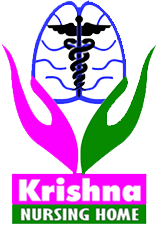FAQ
For the batch of January academic year, the admissions will be on the December of the previous year.
For the batch of July, the admission will be in the June of The academic year
Ever year in the month of June admissions will proceed for that academic year.
Any undergraduate, post graduate course and post-secondary school certification programme.
For the batch of January, the exams will be in the month of May/ June
For the first semester the exams will be in December / January and the second semester will be in May / June
The exams include history taking, diagnosing, presentation, management and viva voce. The examiners are practicing psychiatrist and clinical psychologist.
The practical exam includes presenting one case and followed by management and viva voce.
The classes are taken with audio-visual aids, in the academy’s Auditorium, with student’s chair, with necessary weather and ambience comfort.
For the batch of January, the exams will be in the month of May/ June
Since the motto of the classes are to inculcate the skills to the students, it is always a two-way discussion and a non-threatening, less anxious and motivating classes. With the basic necessary theory, it is predominantly clinical application of the theory in the day to day clinical and counselling setups are discussed. All the practical applications are applied on the same day of discussion either with the patient or mock application.
The student after learning the history taking and mental state examination in the theory classes, will be allowed to take history directly from the patient after taking legal consent. Following that they have to present the history, mental state examination to the psychologist/psychiatrist
Following every class, a post test assessment is conducted. 70% of marks are calculated from the post-test assessment.30% marks are calculated from internal examination conducted at the end of the semester.
Since every class involves practical experience involving patients, the discussions and interactions are hard to replicate once you miss a class.
You gain practical knowledge in history taking, phenomenology, mental state examinations, symptoms of mental disorders, diagnosis, psychological management, applying counselling techniques with patients, familiarizing and applying psychometric tests. Following successful completion of course, you should be able to practice counselling with confidence or work with a mental health team.
